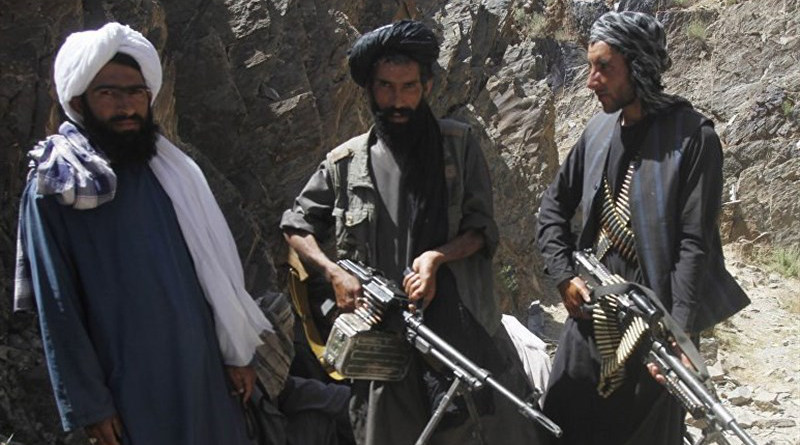Talibans’ Return 20 Years After 9/11: Challenges In Building Peace In Afghanistan – Analysis
Twenty years ago, the United States waged the Global War On Terrorism (GWOT) in the aftermath of the September 11, 2001 (9/11) terrorist attacks. The US declared Afghanistan as the first front in this war with the intention to swiftly crush the Taliban forces for providing safe haven to Osama bin Laden and other leaders of the Al-Qaeda.
The GWOT turned out to be a long and costly war that exhausted the dwindling resources of the US and it’s allies, particularly from North Atlantic Treaty Organization (NATO). Thus far, US war in Afghanistan was the longest battle the American forces have fought. According to the Costs of War Project of Linda Bilmes from Harvard University’s Kennedy School and Brown University, the war was also costly in both human and financial terms.
From 2001 to 2021, money spent on the war in Afghanistan reached at least $US 2.23 trillion covering war borrowings and care expenses for veterans, not to mention the $US143 billion on reconstruction projects and at least $US88 billion on the equipment and training of Afghan forces. The war also resulted in the death of more than 66,000 Afghan forces, 47,000 Afghan civilians and 50,000 Taliban and other anti-government fighters. It also caused the death of around 174,000 American nationals composed of soldiers, contractors, and allied security forces.
Now that the Talibans have regained control under the banner of the Islamic Emirate of Afghanistan (IEA), the challenges of building peace in a country beset by long violent conflicts are real and not imaginary.
First, the IEA under the Taliban leadership needs to establish domestic and international legitimacy. Domestically, armed opposition forces, particularly from members of US-back Northern Alliance, anti-Taliban warlords, and former Talibans who have defected to the Islamic State, can strongly challenge Taliban’s legitimacy. Al-Qaeda forces can also pose an enormous problem to the Taliban government if it fails to meet the expectations of Al-Qaeda. Taliban’s maltreatment of minority and religious groups like the Sikhs, Hindus, Shiites and non-Pashtun ethnic groups can also exacerbate internal armed conflicts.
Internationally, the US, supported by its allies and friends, can deny the Talibans the recognition as the US continues to support the Afghan forces of the ousted regime of Ashraf Ghani. Without the recognition of the US and its allies, the IEA will find it hard to govern Afghanistan.
Second, if the Taliban authorities fail to control armed oppositions, the risk of a civil war is enormously high. This situation can make peacebuilding and national unity efforts more difficult and complicated because of multiple players having their own vested agenda. In fact, US President Joe Biden has already stressed that Afghans should be ready to fight their civil wars. Defense Minister of the United Kingdom, Ben Wallace, has also warned that Afghanistan was heading for a civil war.
Fourth, the geopolitical aspect of the Afghanistan situation can also pose colossal challenge to the Talibans, particularly in the contexts of Pakistan-India conflict and US-China major power competition.
There is no doubt that Pakistani Talibans rejoiced Taliban’s victory in Afghanistan. Pakistan also became the main base of Taliban leadership for 20 years after 9/11. Indian intelligence authorities even accused Pakistan of supporting the Talibans in rebuilding and strengthening Taliban military forces even during the GWOT.
Thus, India, in the context of its conflict with Pakistan, presents a formidable challenge for the Talibans to govern Afghanistan again. Aside from Kashmir, Afghanistan can become a major arena of India-Pakistan conflict that can unleash security anxieties not only in Asia but also in the wider international community, as India and Pakistan are both nuclear power states.
Afghanistan can also become a major arena of US-China competition. It is already known that the Chinese government already had initial talks with the Taliban officials a month before the take over. While China can play a constructive role in promoting peace in Afghanistan by pragmatically involving the Taliban government in China’s Belt and Road Initiative (BRI), the US will not take this effort lightly as this can mean increasing China’s influence in the region. The role of Russia supporting China and challenging US efforts in Afghanistan adds to the equation.
In other words, Taliban’s return to Afghanistan 20 years after 9/11 has concomitant peacebuilding challenges. While everyone wants peace to prevail in Afghanistan, it remains elusive because of internal power dynamics and geopolitical realities.
Building peace in Afghanistan, therefore, rests not only on the shoulders of the Afghan people. The global community also has the responsibility to build peace in this country suffering from protracted violent conflicts.
While the Talibans are still figuring out how to govern Afghanistan, the international community can take immediate and decisive action by peacebuilding through humanitarian assistance. The world should support and empower legitimate indigenous groups currently involved in peacebuilding through humanitarian assistance in Afghanistan. This kind of international action can help severely affected people in Afghanistan surmount their current sufferings as their country undergoes the inevitable painful process of political transition and economic reconstructions under a new regime.

